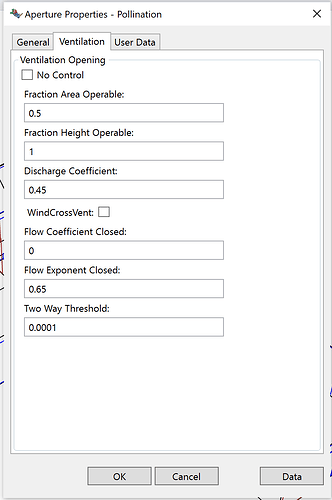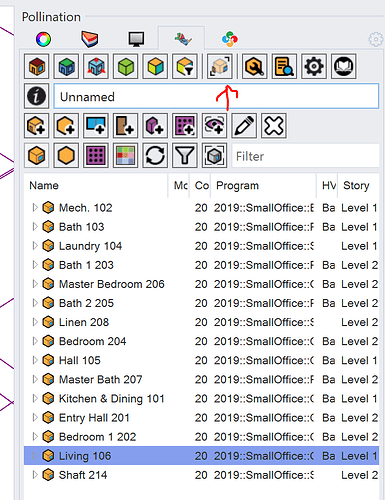Hi @milog ,
Sorry for the late response here. For MVHR, I recommend opening a separate topic because we are starting to get away from the evaluation of natural ventilation for the TM59 standard and we’re more into specifics about passivhaus. There are a few ways to model heat recovery in Pollination/Ladybug Tools but it would be good to have a summary of what exactly you want to be simulated in order to be able to recommend the right one to you. For example, is am I correct that you are trying to run this heat recovery without any heating/cooling system.
I personally find applying different operable fractions to different apertures to be MUCH easier in the Rhino plugin compared to Grasshopper. You just select all of the apertures in the Rhino document that you want to set a certain operable fraction on, then you use the PO_EditApertureProperties command to pull up an interface where you can specify the operable area of all the Apertures at once:
Note that, to have the most control over the Aperture selection you may want to turn the Room selection off first:
With this approach, you can easily specify different operable fractions for different windows of the same room, which is much harder to do in Grasshopper.
Yea, I would not worry too much about the OLD tag as your GHPython components are all still fully functional in Rhino 8. It’s just that McNeel added a new script editing interface, which they are trying to get everyone to use so they label the original one as OLD. If it bothers you, you can call this method inside the component to turn the OLD tag off:
As I said above, I would not worry about upgrading to the new Python components yet. You can either keep using the old component (optionally turning off the old tag) or, if you really want to use the new components, you should use IronPython instead of the cPython3 one (unless you have watched all of Ehsan’s tutorials and you set up your Ladybug Tools dependencies correctly). But we are not planning to upgrade our own Python components any time soon since it will be a long time until the whole community is using Rhino 8 and, even though McNeel labels the component as OLD, they have told us it will be a very long time before the deprecate them.

